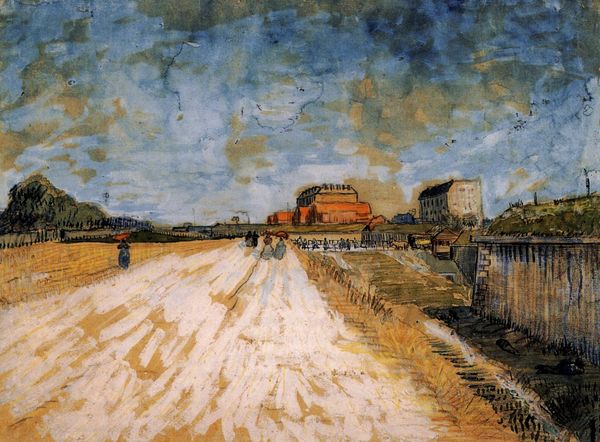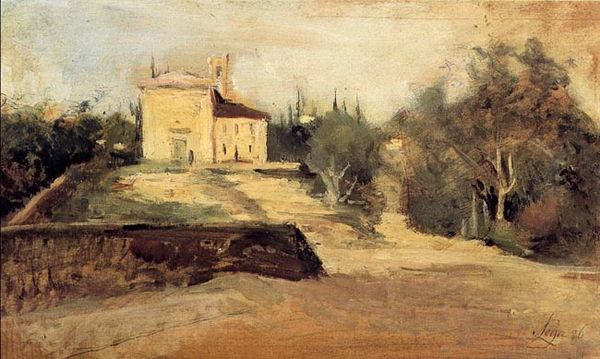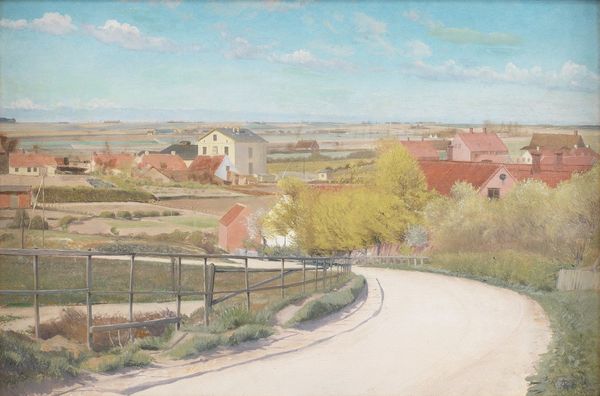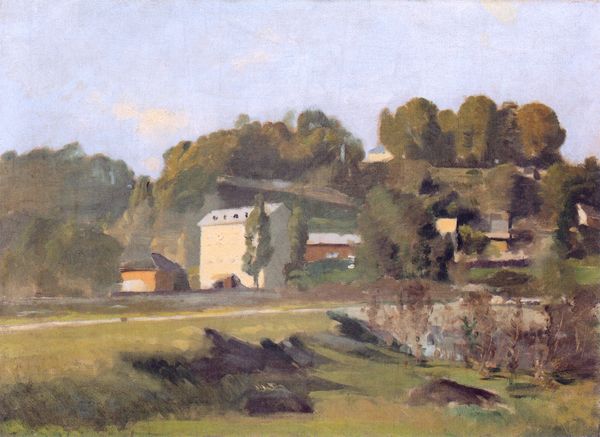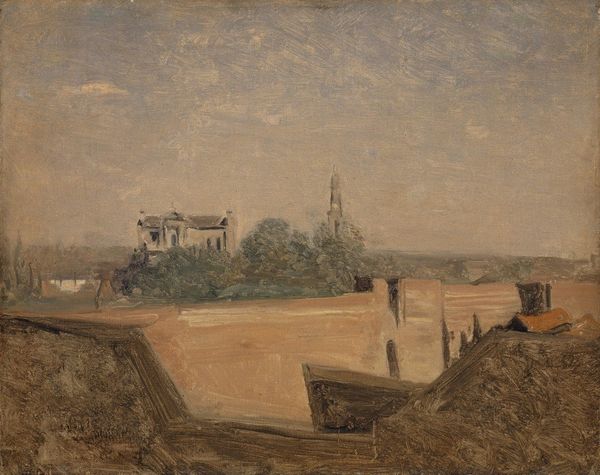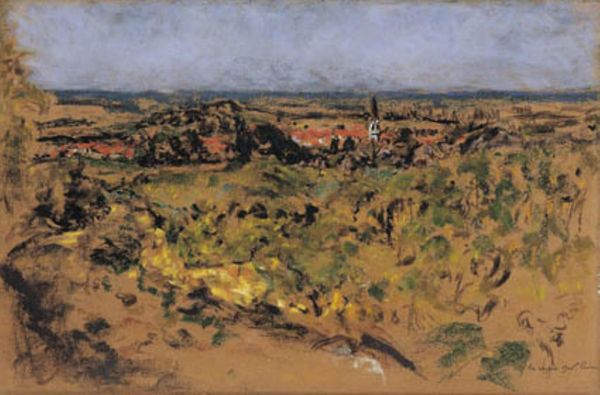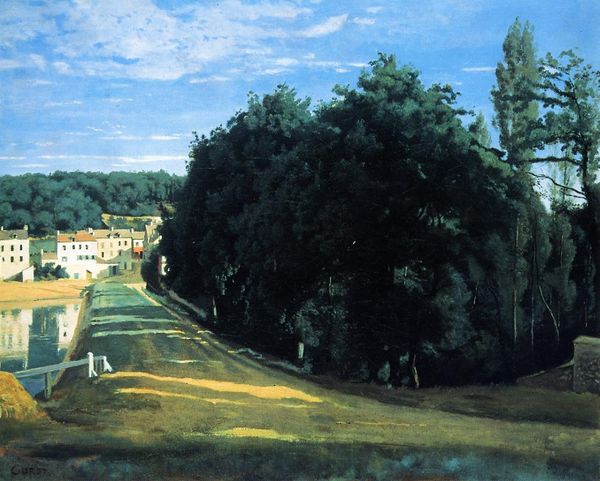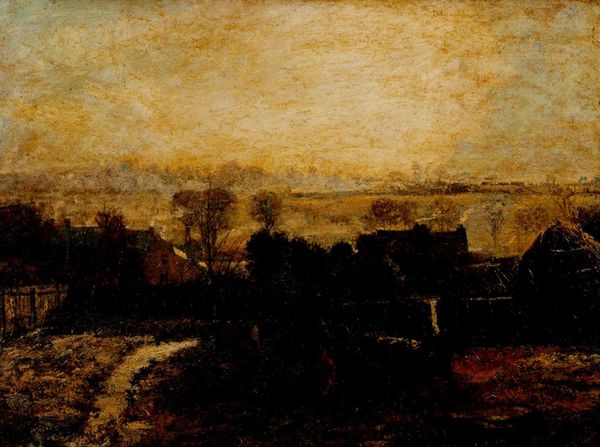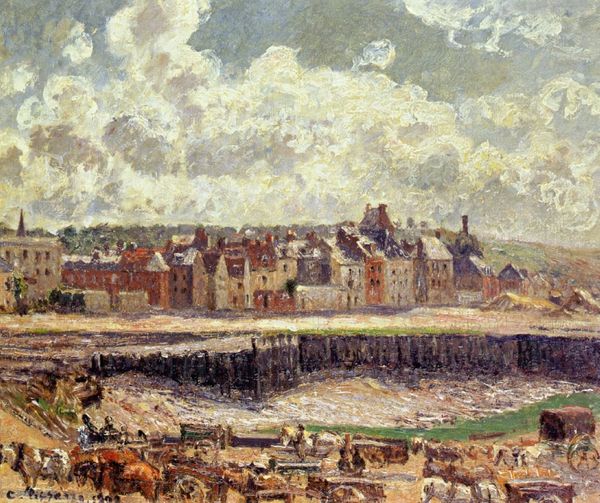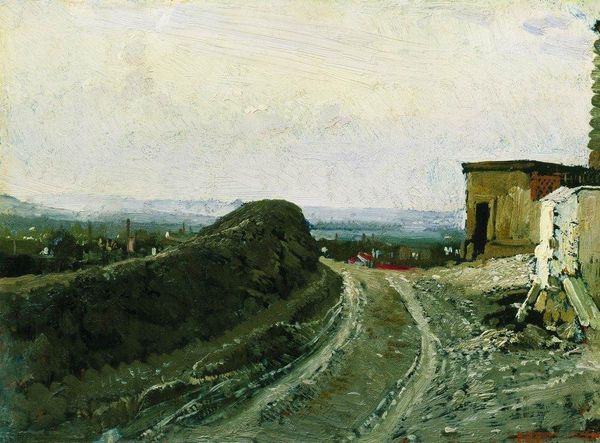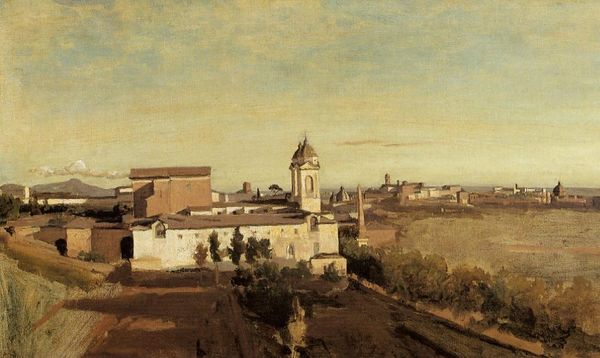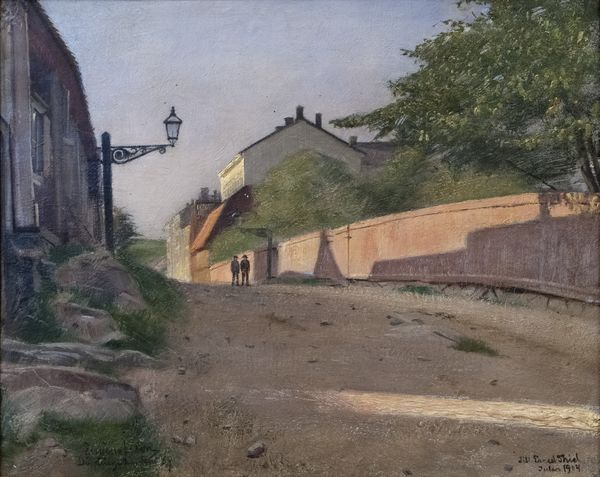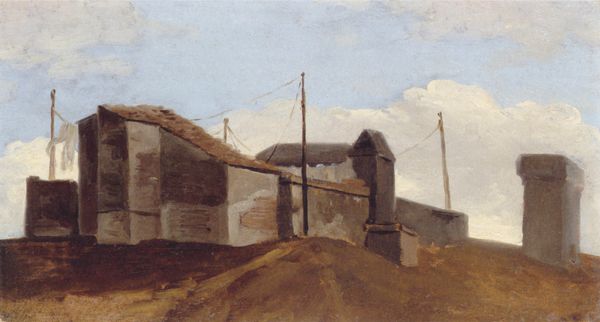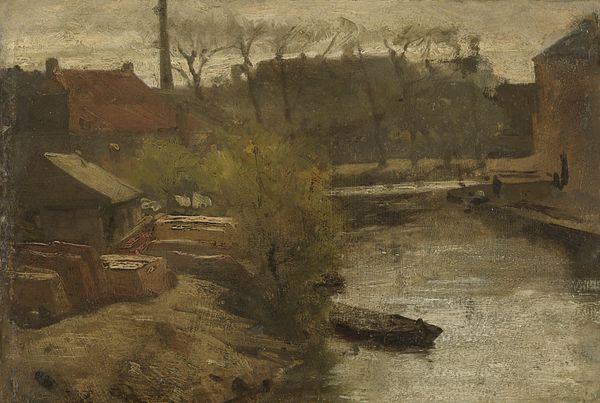
painting, oil-paint
#
painting
#
oil-paint
#
landscape
#
oil painting
#
road
#
expressionism
#
cityscape
#
modernism
#
realism
Dimensions: 95 x 120 cm
Copyright: Public domain US
Curator: Paul Delvaux created this oil painting, "For Auderghem," in 1923. It’s a rather early piece for an artist who would become so well-known for his surrealist figure paintings. What strikes you immediately about it? Editor: There’s a very dreamlike, still quality. It's so brown that at first the houses almost seemed like rocks to me. It's more melancholy than scenic. Curator: Well, Auderghem, then as now, was a suburb of Brussels. It's interesting to see Delvaux applying a certain gravity to what one might otherwise expect to be an unremarkable location. The vantage point and somber coloration gives it a quiet monumentality, wouldn’t you agree? Editor: Absolutely. The road and the bridge almost act like symbols. Road for the life's path; the bridge, a symbolic transition. The colors and light add emotional weight. It makes me wonder what he saw here that inspired this tone. Curator: Given the historical context, painted shortly after the First World War, I wonder if it represents more than just a simple cityscape. The war had a profound effect on Belgium. Do you see any lingering visual signs of that? Editor: Maybe that absence of people. Or just one vehicle. It evokes a feeling of societal pause. And considering the themes in Delvaux's later works, is it too far to see the solitary truck as perhaps foreshadowing a mechanized, impersonal future? Curator: That is astute, and a compelling reading, given the times. You know, it’s fascinating how Delvaux would later abandon these cityscapes entirely for his well known classical settings. It feels like he processed something quite significant in places just like this one. Editor: Yes. It does seem like a kind of emotional and psychological excavation, an elegy cast in brown, that informs everything to follow. This wasn't just Auderghem; it's a world remembered, shaped by more than just bricks and mortar. Curator: It prompts us to consider the intersection between location, emotional response, and cultural memory. Even the seemingly ordinary carries weight. Editor: A subtle testament to the lingering effects of history. It has changed the way I understand Delvaux completely.
Comments
No comments
Be the first to comment and join the conversation on the ultimate creative platform.
